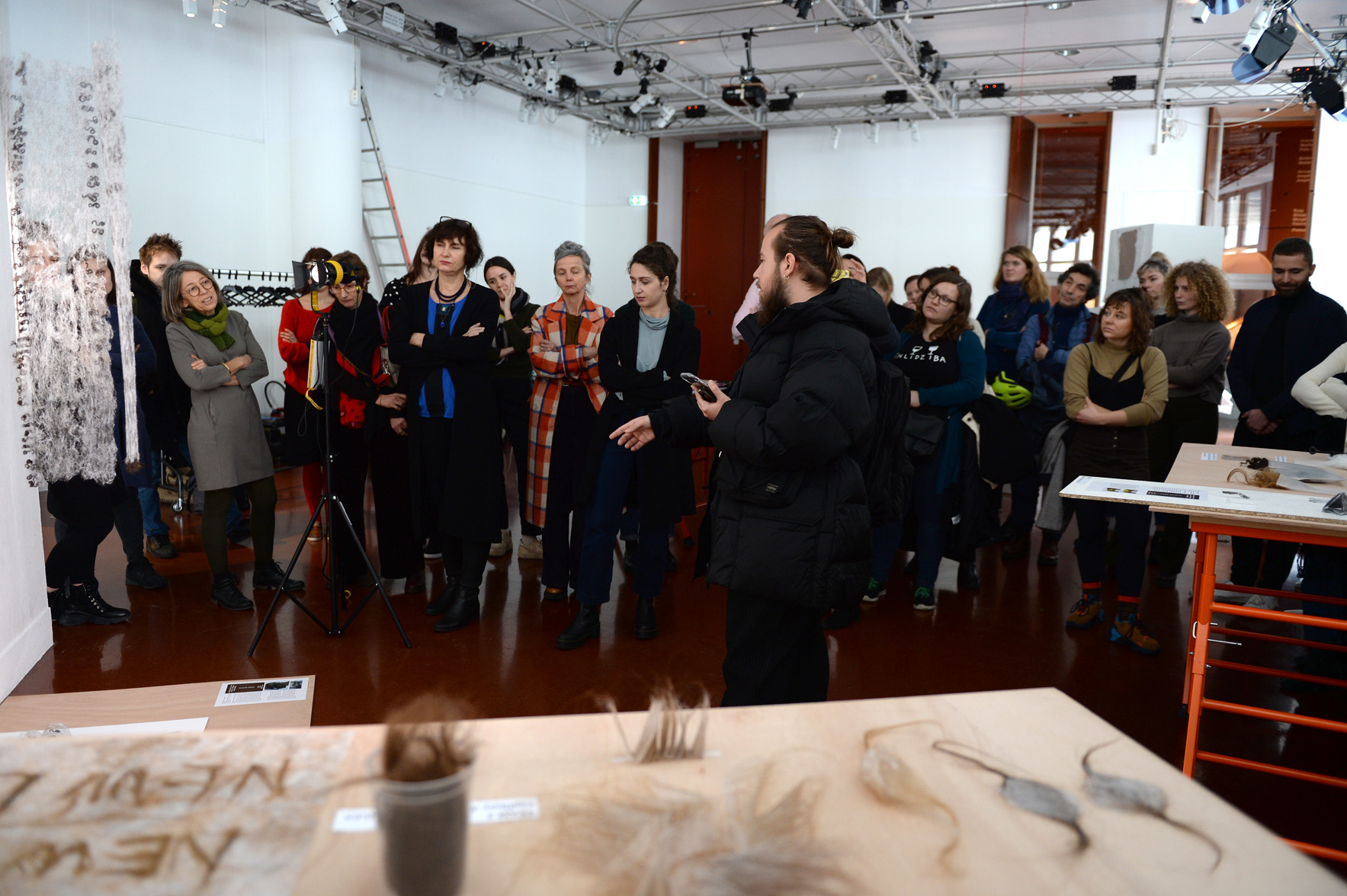ArcInTexNetwork meeting (2019)

ArcInTex Network meeting (2019)
symposium and workshops organized in Ecole des Arts Décos by Soft Matters in the framework of the ArcInTex network, 18-20th of December 2019
The event focus lied in interdisciplinary approaches to soft materialities’ design. In the first two-days workshops, participants had the opportunity to explore materials and processes stemming from current research or curriculum-based projects of EnsAD and involving screen-printing rubble, working with vegetal colours and crafting hair. The symposium was the occasion to explore the relationship between design, science and engineering practices through the lense of interdisciplinary research projects with a strong material focus.
“Soft Matter(s): Sciences-Design junctions & frictions” symposium
In its simplest articulation, design’s activity is concerned with how ideas are embodied into the material world. As such defined, design is not the privilege of specific professionals but of any thinker translating abstract ideas into a material reality. Since the industrial revolution, design has however become a profession in its own right related to a set of activities engaged in the imagination, drawing and prototyping of artefacts and the planning of their production. Materials and techniques are today acknowledged as a fundamental part of this intellectuality. Besides, the term materiality is increasingly used to refer to this specific stage of material transformation induced by architects and designers, after matter or raw materials being transformed through specific cycles of production, transformation and distribution often led by material science & engineering.
While designers, material scientists and engineers share a common interest in practice-based and experimental approaches to research, these different actors of material creation usually apprehend materials in distinct ways. If material scientists understand them as an outcome of their research process, materials are often a starting point of the design process. While material science focuses on molecular structures to distinguish why a material is different from another, engineering is preoccupied with the performance of the material at the scale of the object within a given environment. As for designers, their knowledge of materials is traditionally oriented by their sensorial properties and their context of use.
At a time where ecological challenges require a radical renewal of material practices, this seminar proposes to explore the relationship between design, science and engineering through the prism of material innovation. By bringing an interdisciplinary array of speakers, it will be the occasion to discuss the desired and unexpected frictions and junctions between design and science research practices and question how interdisciplinary collaborations across these disciplines can contribute to the shaping of new sustainable materialities:
- what makes a successful science-design collaboration and how does it lead to the shaping of more sustainable materialities?
- What are the main challenges faced by such collaborations?
- Can textile be a privileged medium to encourage innovation across science and design? How?
By questioning the boundaries between science and design, we ask how more integrative material practices can be fostered for the shaping of more resilient futures and aim at encouraging such dialogue.
Speakers
- Welcome by Emmanuel Tibloux, Head of Ecole Nationale Supérieure des Arts Décoratifs, Paris
- Emmanuel Mahé, Head of research & Ensadlab, École Nationale Supérieure des Arts Décoratifs, Paris
- Philippe Vroman Ass. Prof., Gemtex lab., Ecole Nationale Supérieure des Arts et Industries Textiles, Roubaix
- Emile de Visscher, post.doc, Matter of activities cluster, Humboldt University, Berlin and Associate member of Reflective Interaction, EnsadLab
- Aurélie Mosse, co-head of Soft Matters, EnsadLab, École Nationale Supérieure des Arts Décoratifs, Paris
- Martyn Dade Robertson, Prof. of Emerging Technology, Co-Director of the Hub for Biotechnology in the Built Environment, Newcastle University
Programming & coordination – Aurélie Mosse